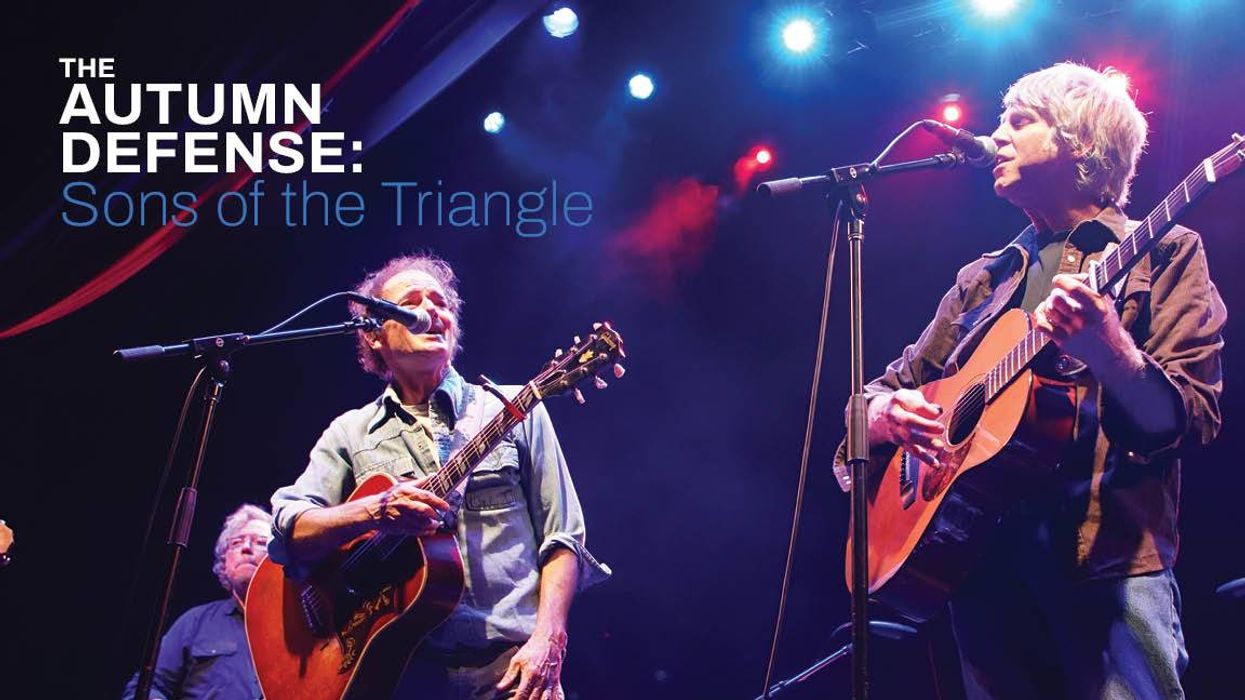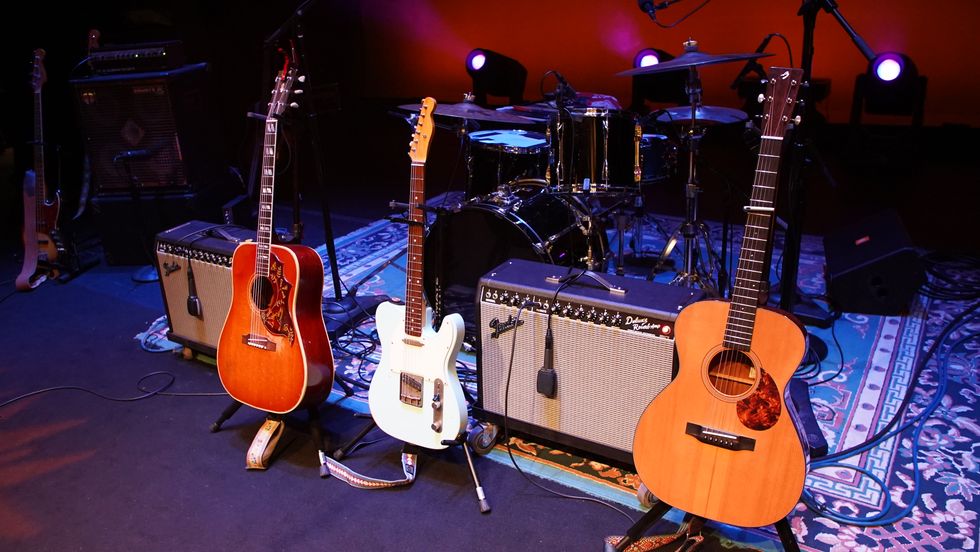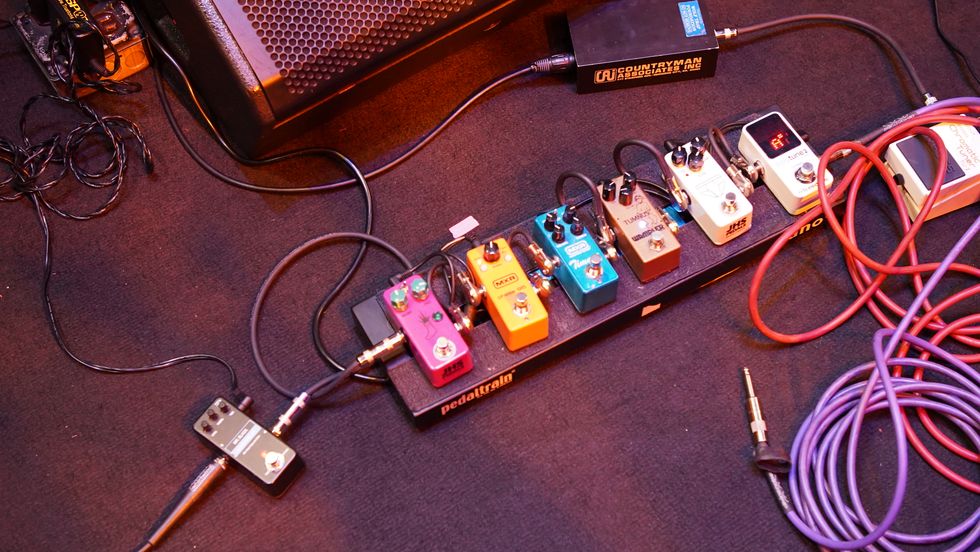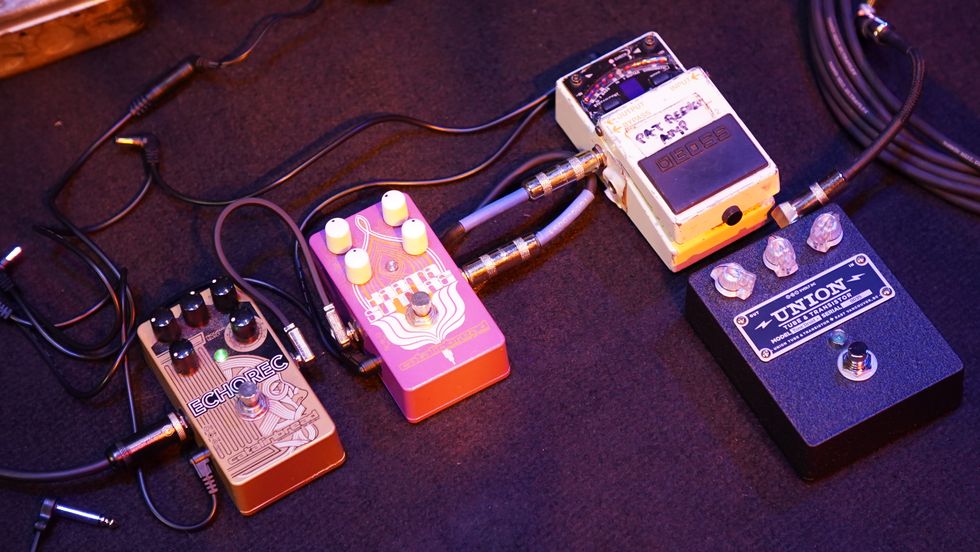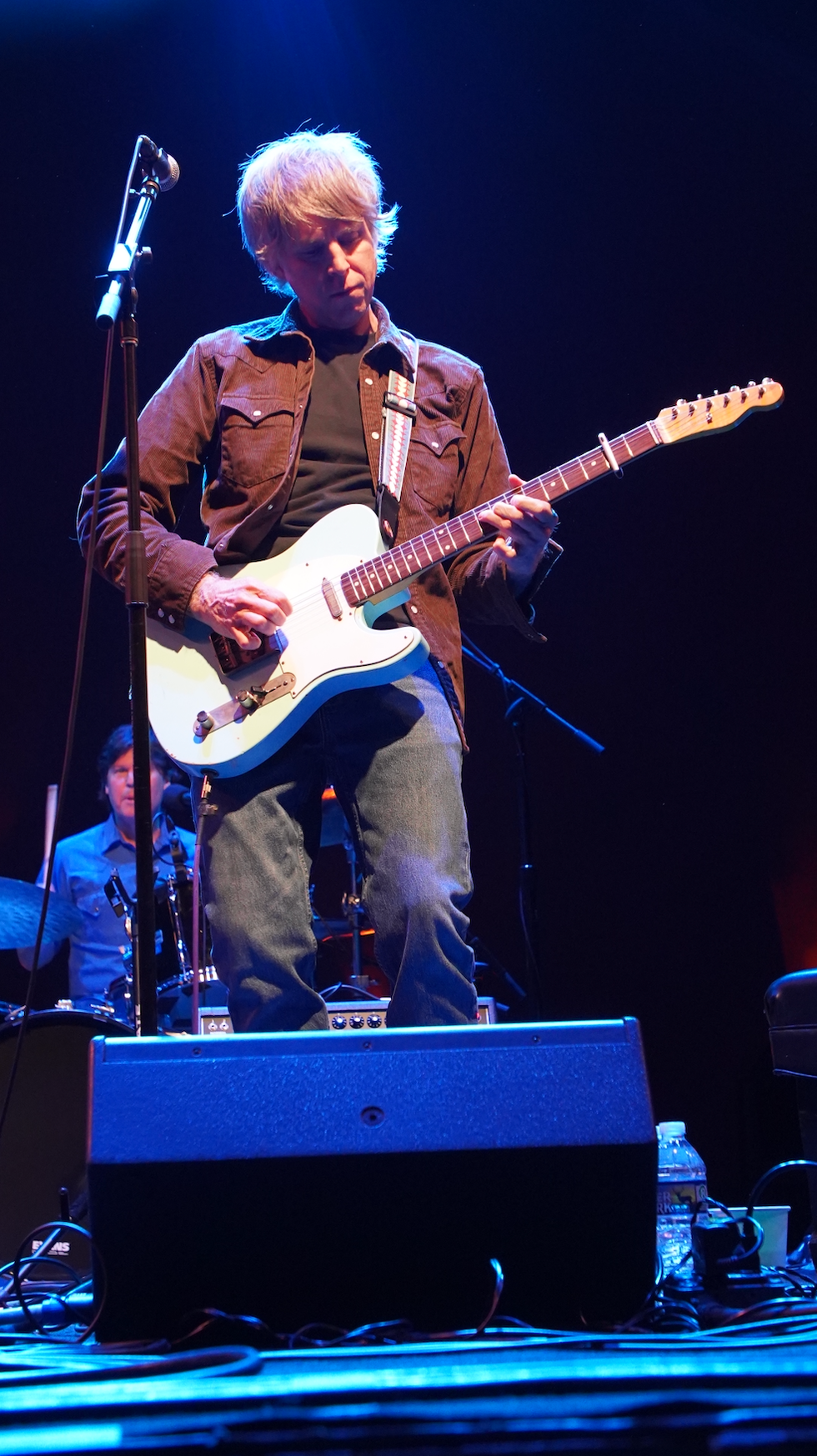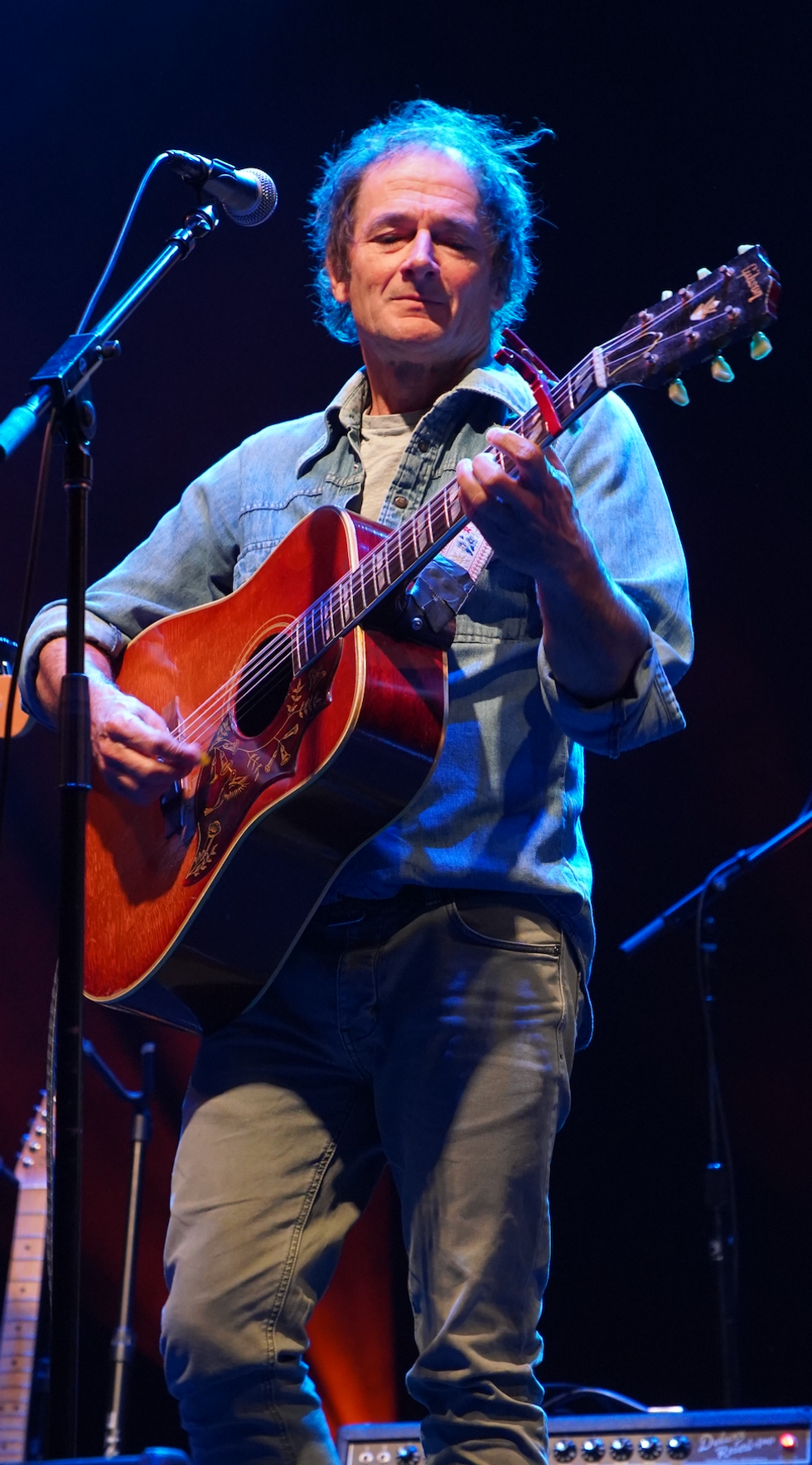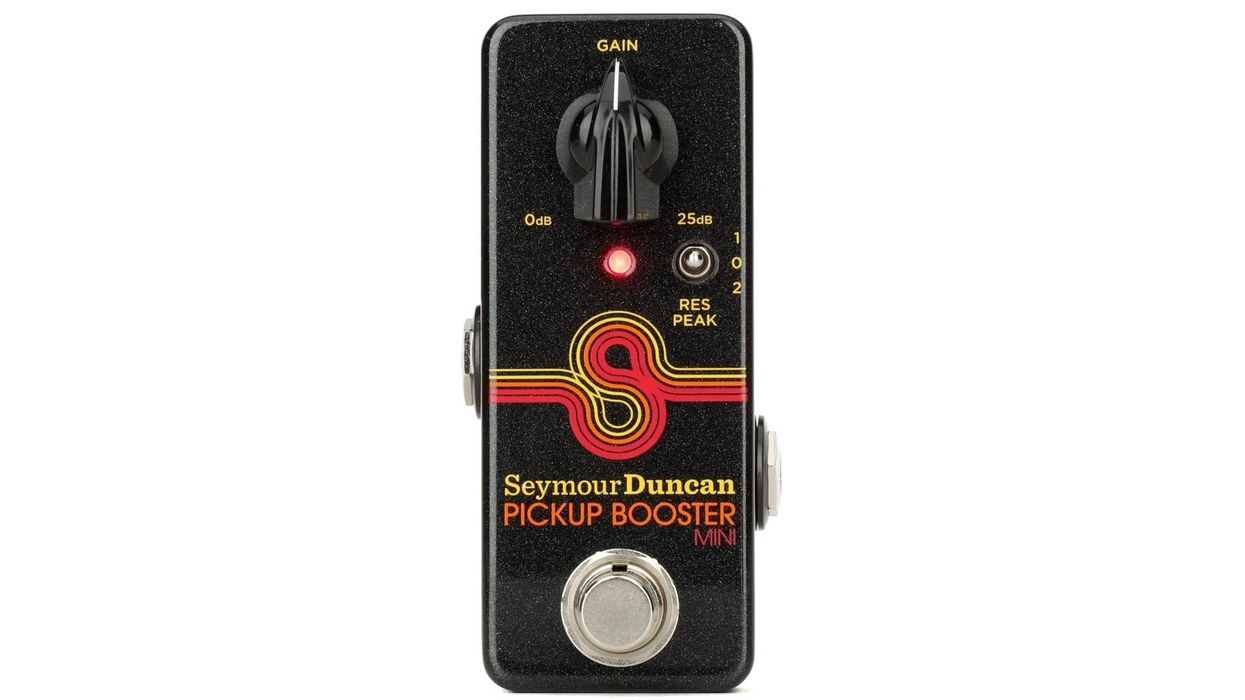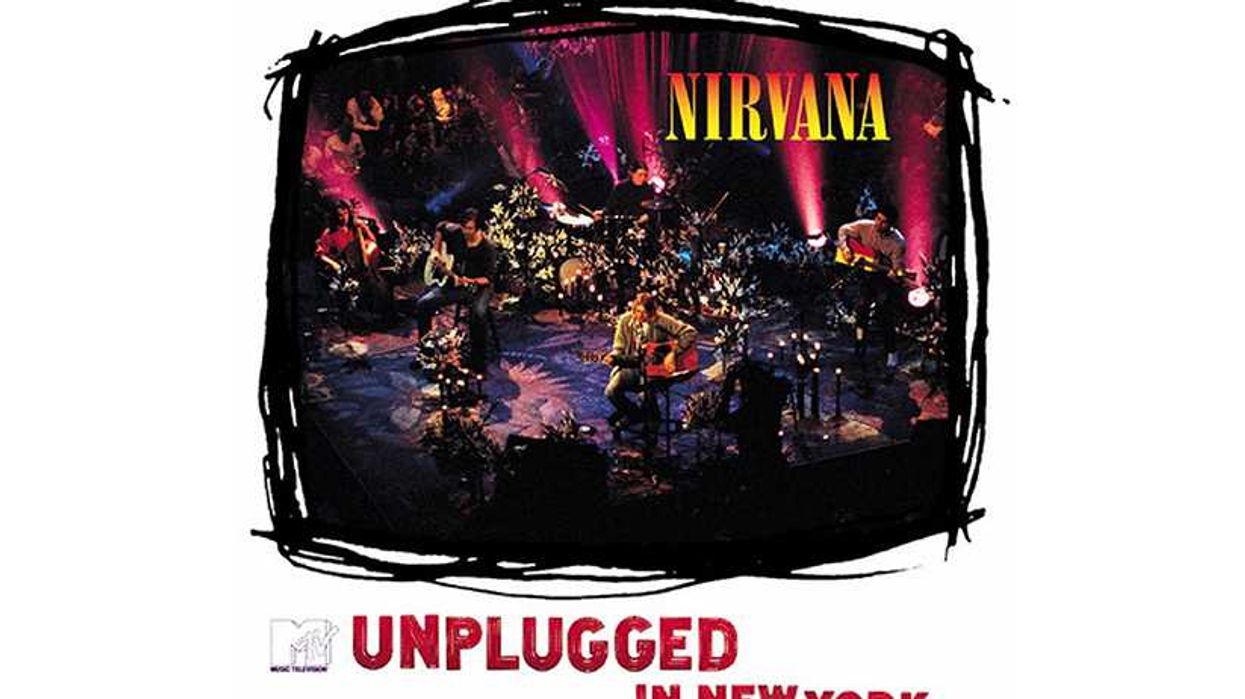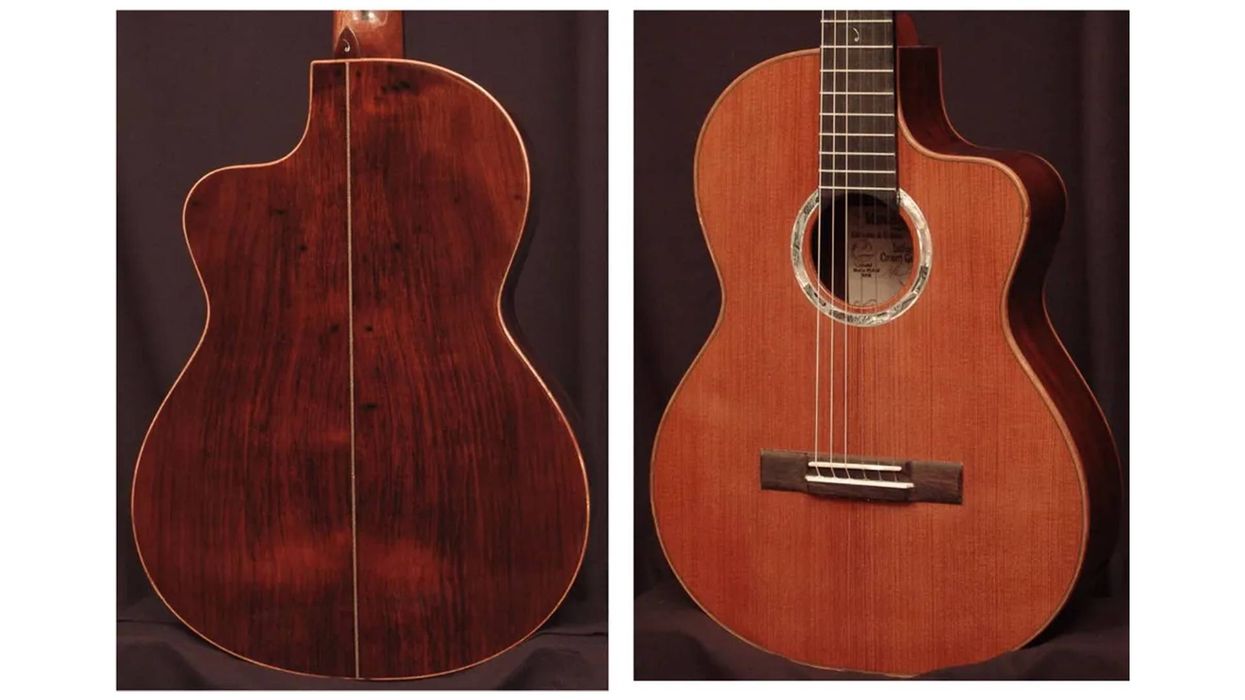“You’ve gotta serve somebody.” Despite our best intentions to show otherwise, we are all beholden to some master. As a young player I had many musical loves. I was taken by the power of Albert King’s “morning” tone, the beauty of Curtis Mayfield’s double stop rhythm playing, the pure sadness of Otis Rush’s vibrato, the elegance of Chet Atkins’ technique—but when I really got to know Jimi Hendrix’s music, it took me like no other. He seemed to encompass many of the best elements of my favorite players, and his soul burnt through everything he touched. I was completely enthralled by him and spent a number of years micro-analyzing his songs, videos, interviews, etc., to find any insight into his soul.
Eventually I had to wean myself off his music after my teenage fascination turned into a thinly veiled young adult addiction. Jimi burnt so intensely in my universe with a uniqueness and power, that was hard for me to digest into something that I could claim as my own. I was blinded by his magic, and in the bright light of his aura the best I could hope for was pale imitation.
I would not be the first to try to cling onto his ideas with the hope of being catapulted beyond my means. He has had many acolytes in the years since he first blossomed, and though many of the guitar players that have been heavily influenced by him are quite good, it’s hard to see them beyond ever smaller echoes of a once glorious sound. I have often been compared to people greater than myself, and though it provides a quick elevator upwards, the glass ceiling of possibilities is very real.
I hit that ceiling somewhere in my mid 20s. Stuck in an aerie that was beyond my natural reach, suddenly I could find little or no value in my own ideas. They sounded so unimportant juxtaposed against those of my mentors, that I had little faith in my own core voice. And as my inner compass disappeared, I was left rudderless. It was terrifying, and compliments fell empty as I started understanding the immensity of the journey ahead.
Destruction is a pretty natural part of creative growth and one that is a necessary component in ultimately trying to build a truly unique structure. I tried to throw out my ways of playing, the pentatonic scales, the vibrato and phrasings that probably defined my style to most people watching. I changed my surroundings, the music I listened to, left my home, and took to wandering the wilderness. It was surprising to see how offensive this was to some people. There is often a sense of “ours” and “theirs,” but when you are wandering it is always both, as provincial thought crumbles with exploration.
I tried alternate tunings, had flirtations with Hindustani music and Celtic music, went back through the great pop/rock bands trying to extract something unique in my playing. I fell in love with simplicity—a 12-string strumming a G chord, the ringing sound of a Tele through an AC30, a clarion chime that seems to speak to a deeper spirit than a simple pop song. I had musical flings with Television, the textural guitar of Johnny Marr and the Edge. I revisited the blues through the fractured lens of Captain Beefheart, as well as the more psychedelic takes that ignited many new bands in the Nuggets box set.
Of course, the further I explored, the more I saw bits of my home in new places. I remember a Miles Davis quote from his biography where he is asked about his music and his path. The interviewer was asking him if he would ever play bebop again. He talked about life, music, and the experience of playing music as being a time in place that could never truly be revisited. His statement made a lot of sense to me, and as I reflect a little on some of the things I have done, I understand it even better. I like to think my voice is clearer these days and hopefully more unique. I have shed some of my more obvious influences and integrated many more sounds into my palette—but these really are micro-changes that I am hyper aware of, and my essence is truly the same as when I started.
In the last few years I have fallen deep under the spell of Richard Thompson. It is funny to find myself slack–jawed after so many years of playing music, but something about the combination of technique, bitterness, joy and longing in his playing speaks deeply to me. He has helped to revalidate the guitar solo as an important songwriting tool to me, and for that I am grateful. He is distinctly British—and there is a gentlemanly undertone to his playing—but he slashes with a ferocity that rips like an angry Oscar Wilde quip. His solos are like walking a tightrope in a windstorm, always on the verge of falling apart, but ultimately landing on solid steps. The influence is less obvious than earlier ones, but I can hear it clearly in my playing these days. I don’t know that he would have me as a student, but I have taken him as a teacher.
I don’t feel that manic dash as I did in my youth to know everything. Maybe it’s becoming a man, or maybe realizing as Mike Stern said, “There is life outside of music and that is vital to the life inside the music.” My approach is less about linear practicing and more about abstract growth these days. I still try to sit with my instrument as much as I can, but the kind of player I want to be cannot be achieved by simply running scales—I need to take in life. Maybe it’s simply an excuse to drink a nice glass of wine, eat a great meal, and watch the wheels spin—but I think it is still in the service of music, and I humbly submit to the great magnet.
 Ian Moore is an Austin, Texas-based guitarist who has had his hands in a bit of everything related to guitar, from an acclaimed solo career to building and modifying his own gear to being a sideman for pop star Jason Mraz. ianmoore.com
Ian Moore is an Austin, Texas-based guitarist who has had his hands in a bit of everything related to guitar, from an acclaimed solo career to building and modifying his own gear to being a sideman for pop star Jason Mraz. ianmoore.com



